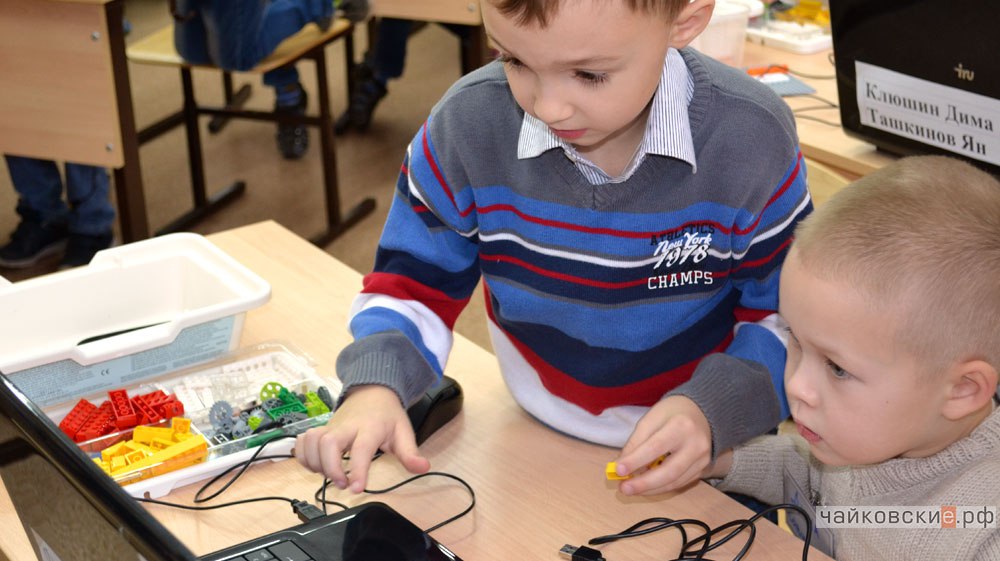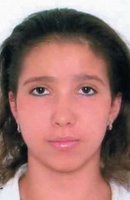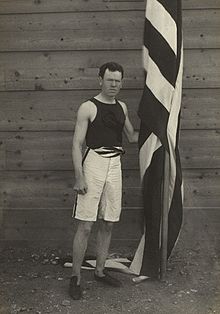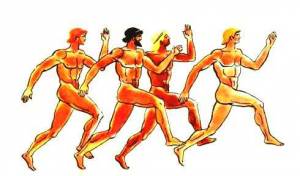Бирюкова, Вера Леонидовна. Бирюкова вера леонидовна
Бирюкова Вера Леонидовна Вики
Вера Леонидовна Бирюкова (род. 1998) — российская гимнастка. Член сборной России по художественной гимнастике. Мастер спорта России международного класса. Чемпионка летних Олимпийских игр 2016 года. Заслуженный мастер спорта[1].
Биография[ | код]
Родилась 11 апреля 1998 года в Омске. Начала заниматься гимнастикой в пять лет. Первый тренер — Наталья Валерьевна Глемба. Училась в омских школах № 61 и 125 (со спортивным уклоном). Тренеры — Оксана Михайловна Курганская, Елена Николаевна Арайс[2], Вера Ефремовна Штельбаумс.
С 2014 года по настоящее время учится в Омском ГУОР.
Достижения[ | код]
- Призёр Кубка России в составе сборной команды Омска — 2013.
- Чемпионка Европы 2014 в групповых упражнениях — золото.
- Этап Кубка мира Казань 2016 — золото (многоборье), золото (обручи и булавы), серебро (ленты).
- Этап Кубка мира Баку 2016 — золото (многоборье), золото (обручи и булавы), серебро (ленты).
- Летние Олимпийские игры 2016 — золото (многоборье)
Награды[ | код]
Примечания[ | код]
Ссылки[ | код]
|
ru.wikibedia.ru
Бирюкова, Вера Леонидовна — Википедия
Материал из Википедии — свободной энциклопедии
Текущая версия страницы пока не проверялась опытными участниками и может значительно отличаться от версии, проверенной 28 ноября 2017; проверки требует 1 правка. Текущая версия страницы пока не проверялась опытными участниками и может значительно отличаться от версии, проверенной 28 ноября 2017; проверки требует 1 правка.Вера Леонидовна Бирюкова (род. 1998) — российская гимнастка. Член сборной России по художественной гимнастике. Мастер спорта России международного класса. Чемпионка летних Олимпийских игр 2016 года. Заслуженный мастер спорта[1].
Родилась 11 апреля 1998 года в Омске. Начала заниматься гимнастикой в пять лет. Первый тренер — Наталья Валерьевна Глемба. Училась в омских школах № 61 и 125 (со спортивным уклоном). Тренеры — Оксана Михайловна Курганская, Елена Николаевна Арайс[2], Вера Ефремовна Штельбаумс.
С 2014 года по настоящее время учится в Омском ГУОР.
- Призёр Кубка России в составе сборной команды Омска — 2013.
- Чемпионка Европы 2014 в групповых упражнениях — золото.
- Этап Кубка мира Казань 2016 — золото (многоборье), золото (обручи и булавы), серебро (ленты).
- Этап Кубка мира Баку 2016 — золото (многоборье), золото (обручи и булавы), серебро (ленты).
- Летние Олимпийские игры 2016 — золото (многоборье)
|
ru.wikiyy.com
Бирюкова, Вера Леонидовна - Howling Pixel
Вера Леонидовна Бирюкова (род. 1998) — российская гимнастка. Член сборной России по художественной гимнастике. Мастер спорта России международного класса. Чемпионка летних Олимпийских игр 2016 года. Заслуженный мастер спорта[1].
| Вера Бирюкова | |||||||||||||||||||||||||||||||||
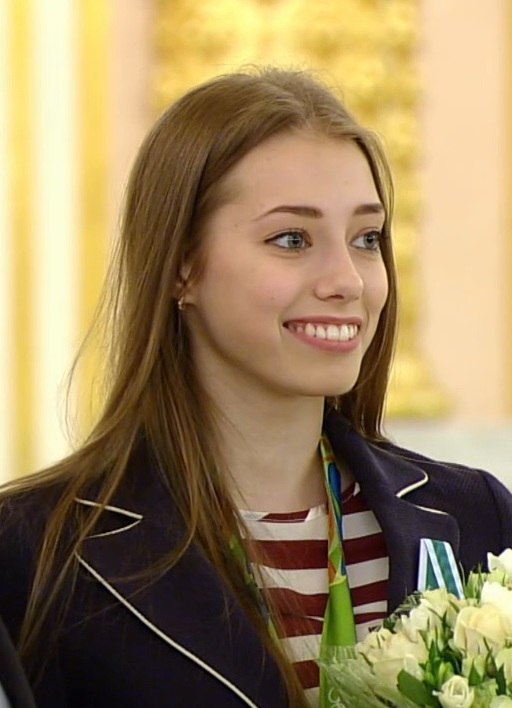 | |||||||||||||||||||||||||||||||||
| женский | |||||||||||||||||||||||||||||||||
| Вера Леонидовна Бирюкова | |||||||||||||||||||||||||||||||||
| Россия | |||||||||||||||||||||||||||||||||
| художественная гимнастика | |||||||||||||||||||||||||||||||||
| 11 апреля 1998 (20 лет) | |||||||||||||||||||||||||||||||||
| Омск, Россия | |||||||||||||||||||||||||||||||||
| 169 см | |||||||||||||||||||||||||||||||||
| 48 кг | |||||||||||||||||||||||||||||||||
| Награды и медали
| |||||||||||||||||||||||||||||||||
Биография
Родилась 11 апреля 1998 года в Омске. Начала заниматься гимнастикой в пять лет. Первый тренер — Наталья Валерьевна Глемба. Училась в омских школах № 61 и 125 (со спортивным уклоном). Тренеры — Оксана Михайловна Курганская, Елена Николаевна Арайс[2], Вера Ефремовна Штельбаумс.
С 2014 года по настоящее время учится в Омском ГУОР.
Достижения
- Призёр Кубка России в составе сборной команды Омска — 2013.
- Чемпионка Европы 2014 в групповых упражнениях — золото.
- Этап Кубка мира Казань 2016 — золото (многоборье), золото (обручи и булавы), серебро (ленты).
- Этап Кубка мира Баку 2016 — золото (многоборье), золото (обручи и булавы), серебро (ленты).
- Летние Олимпийские игры 2016 — золото (многоборье)
Награды
- Орден Дружбы (25 августа 2016 года) — за высокие спортивные достижения на Играх XXXI Олимпиады 2016 года в городе Рио-де-Жанейро (Бразилия), проявленные волю к победе и целеутремленность[3].
- Медаль «За укрепление боевого содружества» (2016)[4].
Примечания
- ↑ ПРИКАЗ «О ПРИСВОЕНИИ ПОЧЕТНОГО СПОРТИВНОГО ЗВАНИЯ „ЗАСЛУЖЕННЫЙ МАСТЕР СПОРТА РОССИИ“»
- ↑ Елена Арайс: «Хотелось бы и в Токио плакать от радости»
- ↑ Указ Президента Российской Федерации от 25.08.2016 № 429 «О награждении государственными наградами Российской Федерации»
- ↑ Министр обороны встретился с армейскими спортсменами-триумфаторами Олимпийских игр в Рио
Ссылки
- Центр художественной гимнастики г. Омск
- Gimnastika.pro
- Вера Бирюкова: «В нашем виде спорта не нужен никакой допинг. Художественная гимнастика — это грация, пластика, зрелищность»
- Олимпиада-2016: умопомрачительная красотка из России, Усэйн Болт не впечатлил маму, Исинбаева заочно выиграла Олимпиаду
- Девушка Олимпиады. Вера Бирюкова
- Первый веб-журнал о самом красивом и женственном виде спорта
- Бирюкова, Вера Леонидовна на сайте Instagram
This page is based on a Wikipedia article written by authors (here). Text is available under the CC BY-SA 3.0 license; additional terms may apply. Images, videos and audio are available under their respective licenses.
howlingpixel.com
Вера Леонидовна Бирюкова Вики
Вера Леонидовна Бирюкова (род. 1998) — российская гимнастка. Член сборной России по художественной гимнастике. Мастер спорта России международного класса. Чемпионка летних Олимпийских игр 2016 года. Заслуженный мастер спорта[1].
Биография[ | код]
Родилась 11 апреля 1998 года в Омске. Начала заниматься гимнастикой в пять лет. Первый тренер — Наталья Валерьевна Глемба. Училась в омских школах № 61 и 125 (со спортивным уклоном). Тренеры — Оксана Михайловна Курганская, Елена Николаевна Арайс[2], Вера Ефремовна Штельбаумс.
С 2014 года по настоящее время учится в Омском ГУОР.
Достижения[ | код]
- Призёр Кубка России в составе сборной команды Омска — 2013.
- Чемпионка Европы 2014 в групповых упражнениях — золото.
- Этап Кубка мира Казань 2016 — золото (многоборье), золото (обручи и булавы), серебро (ленты).
- Этап Кубка мира Баку 2016 — золото (многоборье), золото (обручи и булавы), серебро (ленты).
- Летние Олимпийские игры 2016 — золото (многоборье)
Награды[ | код]
Примечания[ | код]
Ссылки[ | код]
|
ru.wikibedia.ru
Бирюкова, Вера Леонидовна - WikiVisually
1. Россия – Russia, also officially the Russian Federation, is a country in Eurasia. The European western part of the country is more populated and urbanised than the eastern. Russias capital Moscow is one of the largest cities in the world, other urban centers include Saint Petersburg, Novosibirsk, Yekaterinburg, Nizhny Novgorod. Extending across the entirety of Northern Asia and much of Eastern Europe, Russia spans eleven time zones and incorporates a range of environments. It shares maritime borders with Japan by the Sea of Okhotsk, the East Slavs emerged as a recognizable group in Europe between the 3rd and 8th centuries AD. Founded and ruled by a Varangian warrior elite and their descendants, in 988 it adopted Orthodox Christianity from the Byzantine Empire, beginning the synthesis of Byzantine and Slavic cultures that defined Russian culture for the next millennium. Rus ultimately disintegrated into a number of states, most of the Rus lands were overrun by the Mongol invasion. The Soviet Union played a role in the Allied victory in World War II. The Soviet era saw some of the most significant technological achievements of the 20th century, including the worlds first human-made satellite and the launching of the first humans in space. By the end of 1990, the Soviet Union had the second largest economy, largest standing military in the world. It is governed as a federal semi-presidential republic, the Russian economy ranks as the twelfth largest by nominal GDP and sixth largest by purchasing power parity in 2015. Russias extensive mineral and energy resources are the largest such reserves in the world, making it one of the producers of oil. The country is one of the five recognized nuclear weapons states and possesses the largest stockpile of weapons of mass destruction, Russia is a great power as well as a regional power and has been characterised as a potential superpower. The name Russia is derived from Rus, a state populated mostly by the East Slavs. However, this name became more prominent in the later history, and the country typically was called by its inhabitants Русская Земля. In order to distinguish this state from other states derived from it, it is denoted as Kievan Rus by modern historiography, an old Latin version of the name Rus was Ruthenia, mostly applied to the western and southern regions of Rus that were adjacent to Catholic Europe. The current name of the country, Россия, comes from the Byzantine Greek designation of the Kievan Rus, the standard way to refer to citizens of Russia is Russians in English and rossiyane in Russian. There are two Russian words which are translated into English as Russians
2. Художественная гимнастика – Rhythmic gymnastics is a sport in which individuals or groups of five or more manipulate one or two pieces of apparatus, rope, hoop, ball, clubs, ribbon and freehand. Rhythmic gymnastics is a sport that combines elements of ballet, gymnastics, dance, the victor is the participant who earns the most points, determined by a panel of judges, for leaps, balances, pirouettes, apparatus handling, and execution. The choreography must cover the floor and contain a balance of jumps, leaps, pivots, balances. Each movement involves a degree of athletic skill. Physical abilities needed by a rhythmic gymnast include strength, power, flexibility, agility, dexterity, endurance, the sport is governed by the Federation Internationale de Gymnastique, which designs the Code of Points and regulates all aspects of international elite competition. The largest events in the sport are the Olympic Games, World Championships, European Championships, World Cup and this idea was extended by Catharine Beecher, who founded the Western Female Institute in Ohio, United States, in 1837. In Beechers gymnastics program, called grace without dancing, the young women exercised to music, during the 1880s, Émile Jaques-Dalcroze of Switzerland developed eurhythmics, a form of physical training for musicians and dancers. George Demeny of France created exercises to music that were designed to promote grace of movement, muscular flexibility, all of these styles were combined around 1900 into the Swedish school of rhythmic gymnastics, which would later add dance elements from Finland. Around this time, Ernst Idla of Estonia established a degree of difficulty for each movement, in 1929, Hinrich Medau founded The Medau School in Berlin to train gymnasts in modern gymnastics, and to develop the use of the apparatus. Competitive rhythmic gymnastics began in the 1940s in the Soviet Union, the FIG formally recognized this discipline in 1961, first as modern gymnastics, then as rhythmic sportive gymnastics, and finally as rhythmic gymnastics. The first World Championships for individual rhythmic gymnasts was held in 1963 in Budapest, groups were introduced at the same level in 1967 in Copenhagen, Denmark. Rhythmic gymnastics was added to the 1984 Summer Olympics in Los Angeles, however, many federations from the Eastern European countries were forced to boycott by the Soviet Union. Canadian Lori Fung was the first rhythmic gymnast to earn an Olympic gold medal, the group competition was added to the 1996 Summer Olympics in Atlanta. The Spanish team won the first gold medal of the new competition with a team formed by Estela Giménez, Marta Baldó, Nuria Cabanillas, Lorena Guréndez, Estíbaliz Martínez, Olympic rhythmic gymnastics is for male and female participants. Gymnasts start at an age and become age-eligible to compete in the Olympic Games. The latter is still an active gymnast in the circuit of the sport with a career dating back to 2001. She and her fellow countrywoman Almudena Cid are among the oldest rhythmic gymnasts ever, Top rhythmic gymnasts must have many qualities, balance, flexibility, coordination, and strength are some of the most important. The FIG selects which apparatus will be used in competitions, only four out of the five possible apparatuses are sanctioned, up to 2010, the clubs were not used at the senior level
3. Омск – Omsk is a city and the administrative center of Omsk Oblast, Russia, located in southwestern Siberia 2,236 kilometers from Moscow. With a population of 1,154,116, it is Russias second-largest city east of the Ural Mountains after Novosibirsk, during the Imperial era, Omsk was the seat of the Governor General of Western Siberia, and later of the Governor General of the Steppes. For a brief period during the Russian Civil War in 1918–1920, it served as the capital of the anti-Bolshevik Russian State, Omsk is the administrative center of the Siberian Cossack Host. It also serves as the see of the bishop of Omsk and Tara, Omsk stretches along the banks of the north-flowing Irtysh at its confluence with the smaller Om River. The city has an elevation of 87 meters above sea level at its highest point. Omsk is an important railroad hub, and is the point for the northern and southern branches of the Trans-Siberian Railway. The city also serves as a hub for the regional highway network. River-port facilities handle both passengers and freight, giving the city access to navigating the extensive waterways of the Irtysh and Ob River. The waterways connect Omsk with the coal and mineral-mining towns further up the river in Kazakhstan, as well as with the oil, natural gas and lumber operations of northern Siberia. Omsk is served by the Tsentralny Airport, which access to domestic and international destinations, making the city an important aviation hub for Siberia. In 1768 Om fortress was relocated, the original Tobolsk and the restored Tara gates, along with the original German Lutheran Church and several public buildings are left from that time. Omsk was granted town status in 1782, but as the frontier receded and its military importance diminished, the town fell into lethargy. For that time Omsk became a center of the Siberian exile. From 1850 to 1854 Fyodor Dostoyevsky served his sentence in an Omsk katorga prison and he related his impressions of the city in a 1854 letter to his brother Mikhail, Omsk is a hateful hole. There is hardly a tree here, in summer—heat and winds that bring sandstorms, in winter—snowstorms. I have scarcely seen anything of the country round, the place is dirty, almost exclusively inhabited by military, and dissolute to the last degree. If I hadn’t discovered some human beings here, I should have gone utterly to the dogs, development of the city was catalyzed with the construction of the Trans-Siberian Railway in the 1890s that affected significance of Omsk as a logistic hub. Many trade companies established stores and offices in Omsk defining the character of the city center, british, Dutch, and German consulates were established roughly at the same time in order to represent their commercial interests
4. Олимпийские игры – The Olympic Games are considered the worlds foremost sports competition with more than 200 nations participating. The Olympic Games are held four years, with the Summer and Winter Games alternating by occurring every four years. Their creation was inspired by the ancient Olympic Games, which were held in Olympia, Greece, Baron Pierre de Coubertin founded the International Olympic Committee in 1894, leading to the first modern Games in Athens in 1896. The IOC is the body of the Olympic Movement, with the Olympic Charter defining its structure. The evolution of the Olympic Movement during the 20th and 21st centuries has resulted in changes to the Olympic Games. The IOC has had to adapt to a variety of economic, political, as a result, the Olympics has shifted away from pure amateurism, as envisioned by Coubertin, to allowing participation of professional athletes. The growing importance of mass media created the issue of corporate sponsorship, World wars led to the cancellation of the 1916,1940, and 1944 Games. Large boycotts during the Cold War limited participation in the 1980 and 1984 Games, the Olympic Movement consists of international sports federations, National Olympic Committees, and organising committees for each specific Olympic Games. As the decision-making body, the IOC is responsible for choosing the host city for each Games, the IOC also determines the Olympic programme, consisting of the sports to be contested at the Games. There are several Olympic rituals and symbols, such as the Olympic flag and torch, over 13,000 athletes compete at the Summer and Winter Olympic Games in 33 different sports and nearly 400 events. The first, second, and third-place finishers in each event receive Olympic medals, gold, silver, the Games have grown so much that nearly every nation is now represented. This growth has created numerous challenges and controversies, including boycotts, doping, bribery, every two years the Olympics and its media exposure provide unknown athletes with the chance to attain national and sometimes international fame. The Games also constitute an opportunity for the host city and country to themselves to the world. The Ancient Olympic Games were religious and athletic festivals held every four years at the sanctuary of Zeus in Olympia, competition was among representatives of several city-states and kingdoms of Ancient Greece. These Games featured mainly athletic but also combat such as wrestling. It has been written that during the Games, all conflicts among the participating city-states were postponed until the Games were finished. This cessation of hostilities was known as the Olympic peace or truce and this idea is a modern myth because the Greeks never suspended their wars. The truce did allow those religious pilgrims who were travelling to Olympia to pass through warring territories unmolested because they were protected by Zeus
5. Летние Олимпийские игры 2016 – More than 11,000 athletes from 205 National Olympic Committees, including first time entrants Kosovo, South Sudan, and the Refugee Olympic Team, took part. With 306 sets of medals, the games featured 28 Olympic sports, including rugby sevens and golf and these sporting events took place at 33 venues in the host city, and at five in São Paulo, Belo Horizonte, Salvador, Brasília, and Manaus. These were the first Summer Olympic Games under the International Olympic Committee presidency of Thomas Bach, the host city Rio de Janeiro was announced at the 121st IOC Session in Copenhagen, Denmark, on 2 October 2009. Rio became the first South American city to host the Summer Olympics, the United States topped the medal table for the fifth time in the past six Summer Olympics, winning the most golds and most medals overall, as well as its 1, 000th Olympic gold medal overall. Great Britain finished second and became the first country in the history of the modern Olympics to increase its tally of medals in the subsequent games after being the host nation. Host country Brazil won seven medals, its most at any single Summer Olympics. Bahrain, Fiji, Jordan, Kosovo, Puerto Rico, Singapore, Tajikistan, Ivory Coast and Vietnam each won their first gold medals, the bidding process for the 2016 Olympic Games was officially launched on 16 May 2007. The first step for each city was to submit an application to the International Olympic Committee by 13 September 2007. Completed official bid files, containing answers to a 25-question IOC form, were to be submitted by each 14 January 2008. Four candidate cities were chosen for the shortlist on 4 June 2008, Chicago, Madrid, Rio de Janeiro and Tokyo, prague and Baku also failed to make the cut. Nawal El Moutawakel of Morocco headed the 10-member Evaluation Commission, having chaired the evaluation commission for the 2012 Summer Olympics bids. The commission made on-site inspections in the quarter of 2009. They issued a comprehensive technical appraisal for IOC members on 2 September, many restrictions are in place designed to prevent bidding cities from communicating with or influencing directly the 115 voting members. Cities may not invite any IOC member to visit nor may they send anything that could be construed as a gift, the final voting was held on 2 October 2009, in Copenhagen with Madrid and Rio de Janeiro perceived as favourites to land the games. Chicago and Tokyo were eliminated after the first and second rounds of voting, respectively, the lead held and Rio de Janeiro was announced as host of 2016 Summer Olympics. This comes just five months after CCO Flávio Pestana quit for personal reasons, Pestana withdrew later during the 2012 Summer Paralympics. Renato Ciuchin was then appointed as COO, events took place at eighteen existing venues, nine new venues constructed specifically for the Games, and seven temporary venues. Each event was held in one of four geographically segregated Olympic clusters, Barra, Copacabana, Deodoro, the same was done for the 2007 Pan American Games
wikivisually.com
Бирюкова, Вера Леонидовна - Gpedia, Your Encyclopedia
Текущая версия страницы пока не проверялась опытными участниками и может значительно отличаться от версии, проверенной 28 ноября 2017; проверки требует 1 правка.
 Текущая версия страницы пока не проверялась опытными участниками и может значительно отличаться от версии, проверенной 28 ноября 2017; проверки требует 1 правка.
Текущая версия страницы пока не проверялась опытными участниками и может значительно отличаться от версии, проверенной 28 ноября 2017; проверки требует 1 правка. Вера Леонидовна Бирюкова (род. 1998) — российская гимнастка. Член сборной России по художественной гимнастике. Мастер спорта России международного класса. Чемпионка летних Олимпийских игр 2016 года. Заслуженный мастер спорта[1].
Биография
Родилась 11 апреля 1998 года в Омске. Начала заниматься гимнастикой в пять лет. Первый тренер — Наталья Валерьевна Глемба. Училась в омских школах № 61 и 125 (со спортивным уклоном). Тренеры — Оксана Михайловна Курганская, Елена Николаевна Арайс[2], Вера Ефремовна Штельбаумс.
С 2014 года по настоящее время учится в Омском ГУОР.
Достижения
- Призёр Кубка России в составе сборной команды Омска — 2013.
- Чемпионка Европы 2014 в групповых упражнениях — золото.
- Этап Кубка мира Казань 2016 — золото (многоборье), золото (обручи и булавы), серебро (ленты).
- Этап Кубка мира Баку 2016 — золото (многоборье), золото (обручи и булавы), серебро (ленты).
- Летние Олимпийские игры 2016 — золото (многоборье)
Награды
Примечания
Ссылки
|
www.gpedia.com
 Олимпийские чемпионки по художественной гимнастике в групповом многоборье
Олимпийские чемпионки по художественной гимнастике в групповом многоборье Бальдо, Кабанильяс, Хименес, Гурендес, Ламарка, Мартинес
Бальдо, Кабанильяс, Хименес, Гурендес, Ламарка, Мартинес Белова, Шаламова, Нетёсова, Лаврова, Шиманская, Зильбер
Белова, Шаламова, Нетёсова, Лаврова, Шиманская, Зильбер
